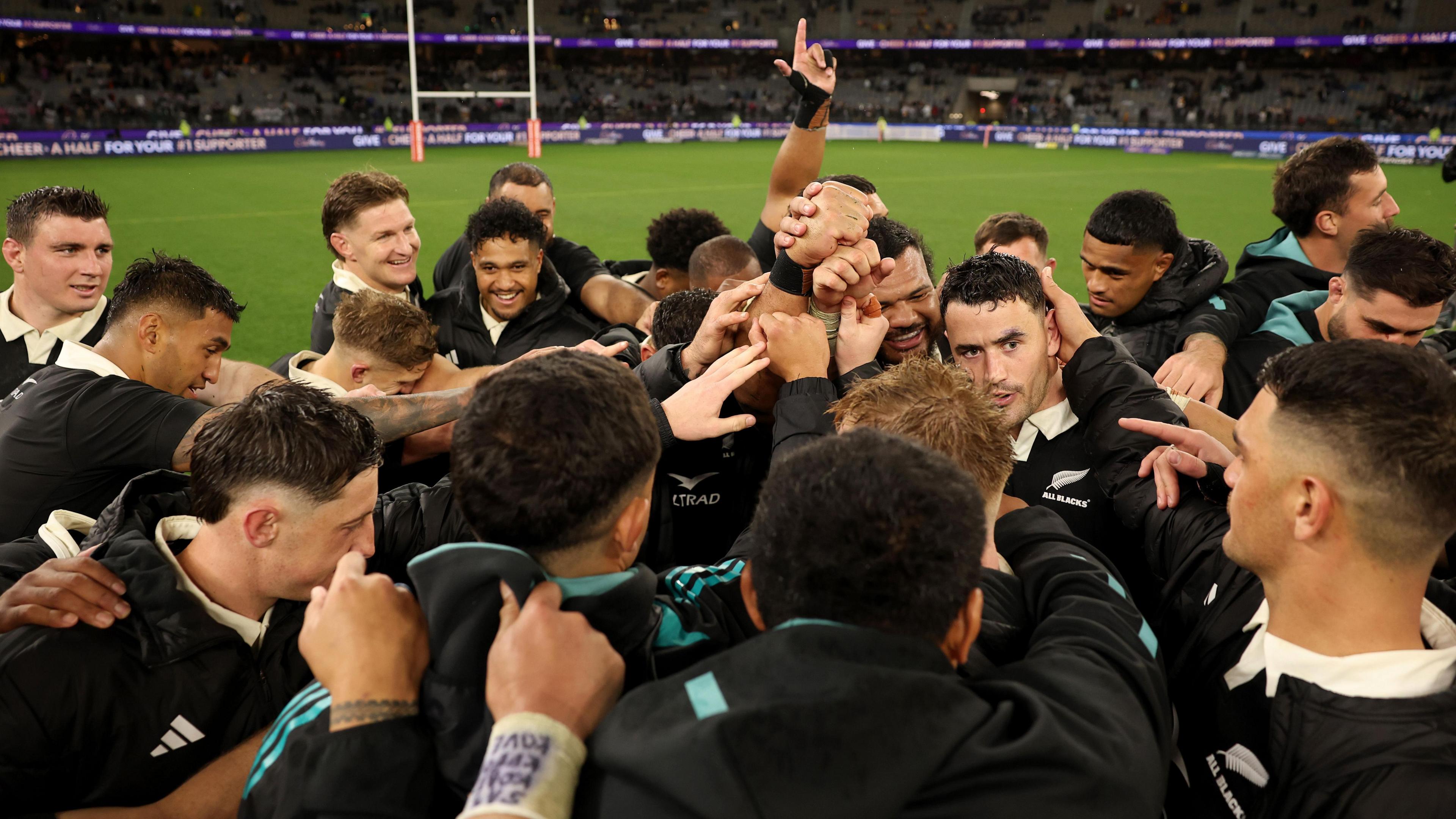 Image source, Getty Images
Image source, Getty Images
The All Blacks have won 71% of their games during the 2020s
ByJonathan Bradley
BBC Sport NI senior journalist
Seeking what would be just a fifth 'Grand Slam' of the northern hemisphere in their storied history, the All Blacks have headed north at an interesting juncture.
Games against Ireland, Scotland, England and Wales await Scott Robertson's side across the next four weekends but, quite aside from the chance to join the sides of 1978, 2005, 2008 and 2010 in the record books, the fixtures will be used as a yardstick to measure the progress of the team under a head coach now two years on from taking up the reins.
Questions over a lack of an identifiable style, enduring debates over selection and departures from the coaching ticket have all contributed to the sense that the most recognisable team in the sport is presently one in a state of flux.
Most pertinently, it is the dip in results from a historic high watermark set between the World Cups of 2011 and 2019 that has caused some to speculate that we have moved out of the age of All Black exceptionalism.
Prior to their departure for the northern hemisphere, it was confirmed that next year, in the absence of the Rugby Championship, New Zealand will face South Africa in a summer series dubbed 'a tour like no other'.
Historically the game's two strongest sides, there is little doubt over who has recently got the better of what marketers have called 'Rugby's Greatest Rivalry'.
Over the past seven years, the Springboks have won a pair of World Cups, three Rugby Championships and a series against the British and Irish Lions to be considered the team of their era.
New Zealand have continued to beat Ireland when it matters most, overcoming Saturday's opponents in the World Cup quarter finals of 2019 and '23. They have, meanwhile, lost just two of the past 21 meetings with England, have beaten Wales in every encounter since 1963 and have never suffered defeat by Scotland.
But the loss of their status as the game's gold standard will continue to rankle.
While the All Blacks dominated through the 2010s - winning 87% of their Test matches in the decade, as well as lifting the Webb Ellis on two occasions - the World Cup of 2019 can now be viewed as when the balance of power shifted in the global game.
New Zealand beat South Africa in their opening match of the tournament in Japan, but it was the Boks' who were ultimately triumphant in Yokohama.
Since then, the All Blacks' winning percentage has dropped to 71%. South Africa themselves lost 10 of their next 26 Test matches but, since the start of 2023, have won at a rate (83%) to rival even the last great New Zealand team.
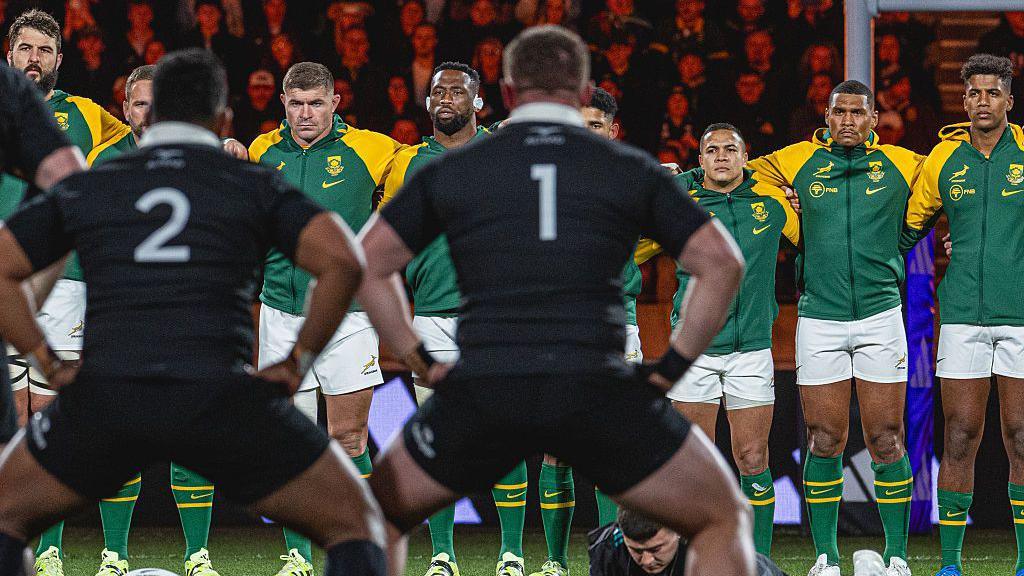 Image source, Getty Images
Image source, Getty Images
The All Blacks will play four Tests against South Africa in 2026
During the same period, the 'Boks have won five of the seven meetings between the sides, including victory in the 2023 World Cup final.
In claiming their most recent southern hemisphere crown, Rassie Erasmus' side inflicted a record 43-10 defeat on the All Blacks courtesy of 36 unanswered second-half points in Wellington, a result which has sparked another wave of debate regarding the direction of the side under Robertson.
Perhaps most jarring for supporters of the All Blacks will be that, allied to their usual power, South Africa's success has come with an attacking verve more usually associated with their own side.
When the All Blacks were at the peak of their powers 10 years ago, they were a ruthless counter-attacking unit capable of shredding opponents from any part of the field and at any point of the game.
Today, their attacking style is less defined as Robertson, who has handed out 19 debuts during his two years in charge, tries to first establish the more prosaic building blocks of a successful side.
It has already been confirmed that the assistant coach responsible for attack, Jason Holland, will leave his role after the autumn tour, becoming the second member of Robertson's ticket to depart after Leon MacDonald walked away last year after just five Tests.
It was not only Robertson's success, but his style, that was expected to transfer from Crusaders when he took over after the 2023 World Cup but, as yet, both remain a work in progress.
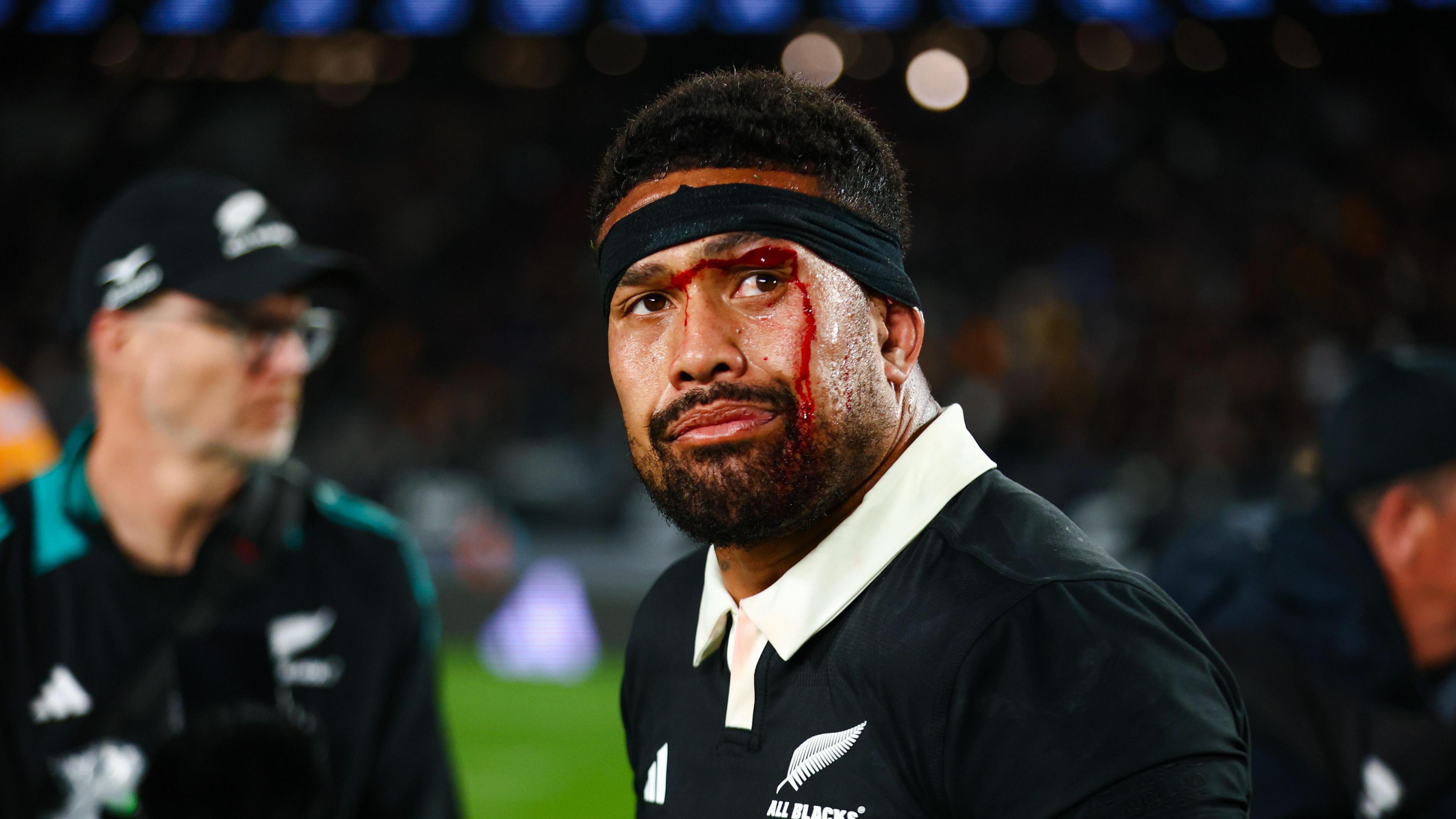 Image source, Getty Images
Image source, Getty Images
Ardie Savea was the named World Rugby Player of the Year in 2023
When private equity firm Silver Lake bought a stake in All Blacks in 2022, the ensuing statement spoke of the "pursuit of new global opportunities" for the organisation.
That task has perhaps been harder by the lack of a crossover star. Ardie Savea and the trio of Barrett brothers remain household names in the sport, but the concentration of stars has never been spread wider. Savea is the only All Black to win World Player of the Year in the past six seasons, in contrast to 10 in 13 years between 2005 and '07.
Instead, efforts have been made to transplant the All Blacks into previously untapped markets.
The first leg of this 'Grand Slam' tour brings New Zealand not to Dublin but Chicago, a return to the Soldier Field venue where Ireland secured a first ever victory in the fixture nine years ago.
Since the easing of Covid-19 travel restrictions, the All Blacks have also played Fiji in San Diego and the Springboks in Twickenham. The last of the four Tests against South Africa in 2026 will be played at a neutral venue too.
In turn, however, such a schedule is hardly likely to make things easier for Robertson as he seeks a return to the levels of a decade ago in the here and now while simultaneously building a team capable of winning the World Cup in Australia in two years' time.
The 51-year-old will know that only one thing can quieten such existential debates and silence the growing number of critics. Historically, it is what they have done more than any other side in the game.

 Movie
Movie 1 month ago
119
1 month ago
119 

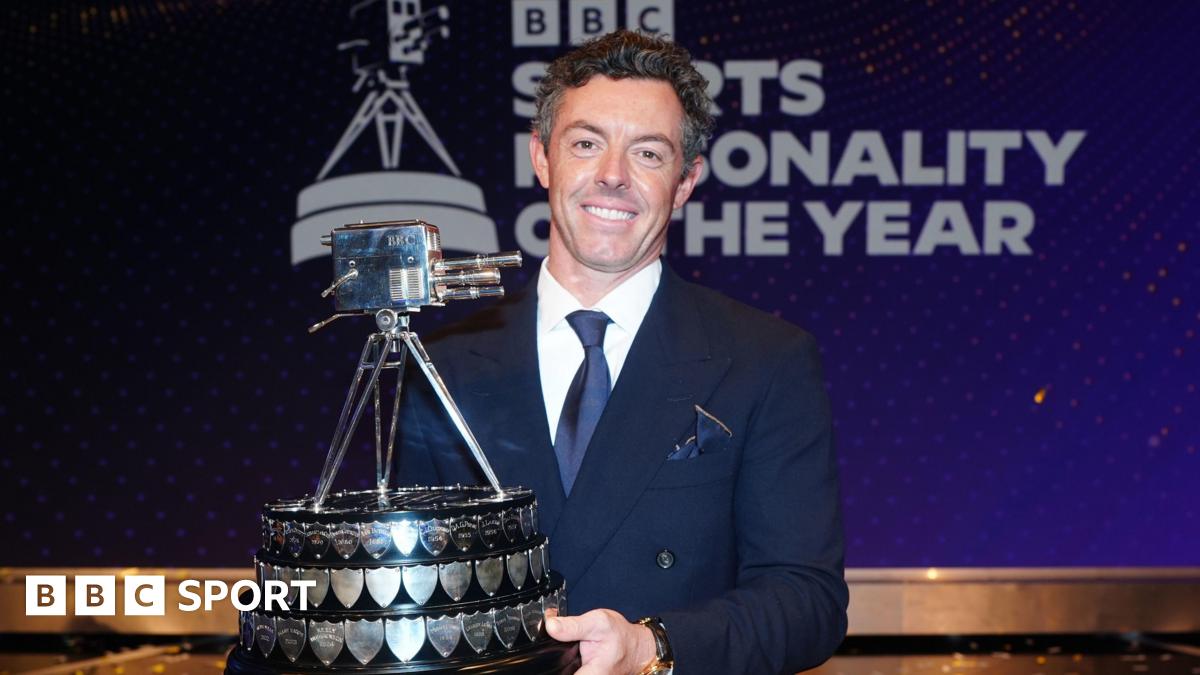

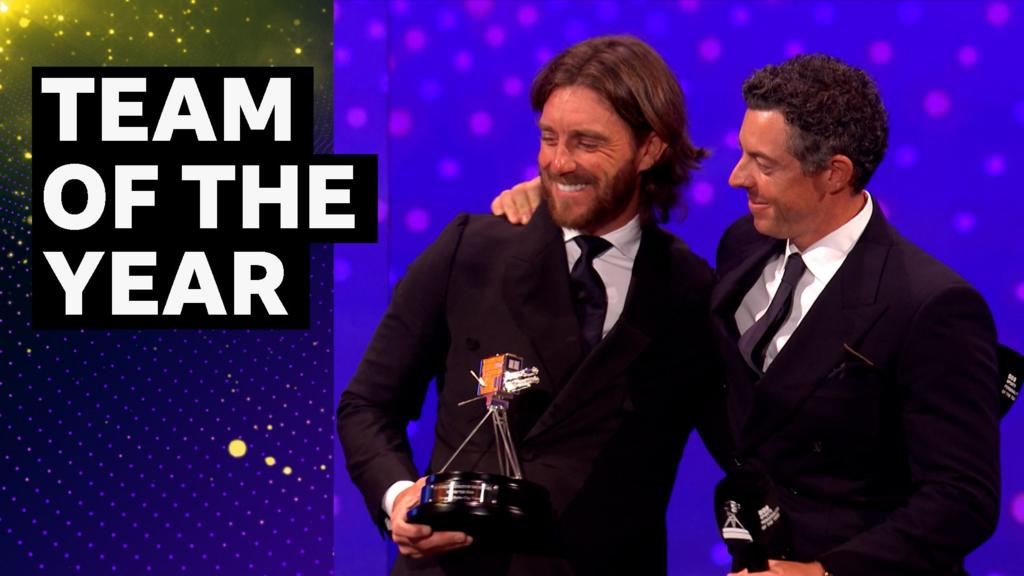

![Presidents Day Weekend Car Sales [2021 Edition] Presidents Day Weekend Car Sales [2021 Edition]](https://www.findthebestcarprice.com/wp-content/uploads/Presidents-Day-Weekend-car-sales.jpg)




 English (United States)
English (United States)